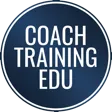
I just need to become a more confident coach!
When I was a kid, I wished I had a muscular friend who could step into my life at times and give me confidence to face my fears. I was bullied throughout Elementary School, and it took years for me to realize that I needed to trust others to help me when dealing with difficult peers.
When it comes to life coaching, sometimes we feel a pressure during a call that makes us feel nervous, insignificant and unhelpful. It’s the bully from the playground, but it sounds a lot like our own voice in our heads. While this self-criticism can be strong, the good news is that we don’t have to rely on ourselves to be stronger. We have a secret weapon: The Coaching Process.
ICF: “Be Confident in the the Process.”
The International Coach Federation expects higher level coaches to trust the process to add value instead of feeling like they need to add the value to their sessions personally. This is especially true for Master Certified Coaches, but it is a helpful perspective for every coach starting from Day 1. When you are in the midst of a coaching session, and you are worried about the value you are providing the client, keep this in mind: “I don’t need to provide value for my client.” When we let go of the need to provide value ourselves, we tend to listen more effectively. It also prompts us to ask more questions that are natural to the session itself instead of being canned, and facilitate a process that adds a great deal of value.
Becoming More Confident in the Process
Here are some guidelines to help you deal with that internal bully and trust the coaching process:
- Set a clear, meaningful and measurable agenda early on. This allows you to facilitate the coaching process without worrying what the point of the conversation is. When you and your client know your destination, you can be more relaxed as you set a course leaving the coastline in favor of unexplored waters.
- Memorize Coaching Formulas over Coaching Questions. Many new coaches need to rely on lists of questions to get the ball rolling with their skills. However, the more you grow as a coach, the more you can rely on creating coaching questions through the use of simple formulas. Some examples are:
Agenda (Preparing for Chemistry Final) + Insight (An A-Ha moment from the middle of a session) = “How does this insight relate to being prepared for that final?”
Observation + Curiosity = You just started talking really fast there, what’s exciting about this topic?“
“Job Interview” (Topic) + “Nervous” (word from client’s previous response) + Learning (A category of coaching questions) = “What are you learning about your nervousness in interviewing?” - Practice, Practice, Practice. Once you realize that you don’t have to personally add value to a coaching session, your greatest work will be in keeping the coaching in play. Get more training, pick up more practice clients and try new questions on a regular basis. The more you practice, the more confident you will be in coaching itself.




